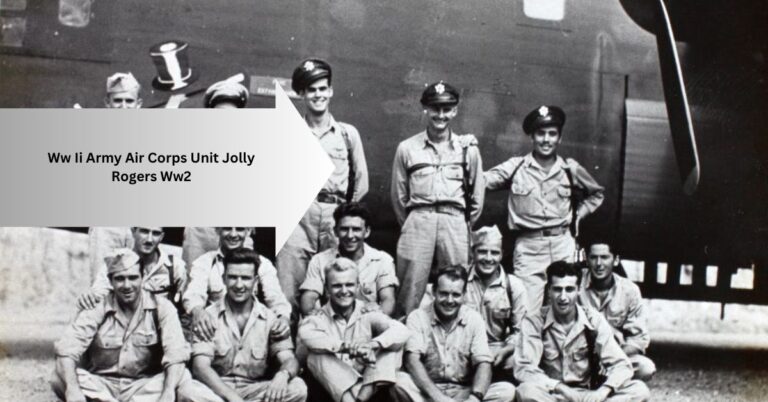Solo Army Scanlation – Legal Issues in Scanlation!
Solo Army scanlation is when one person quickly translates and shares manga or webtoon chapters independently, offering a personal touch but facing challenges like quality control and legal risks.
In this article, we’ll explore the rise of Solo Army Scanlation, where dedicated individuals translate and share manga and webtoon content, often faster than official releases. Join us as we uncover the appeal and challenges of this growing trend in the manga community.
Table of Contents
What is Scanlation?
Scanlation is a combination of “scan” and “translation.” It involves the process of scanning manga or webtoon chapters, translating the text from the original language (often Japanese, Korean, or Chinese), and editing the artwork to integrate the translated text. These fan-driven projects make manga and webtoons accessible to audiences who may not speak the original language of the work.
Scanlation has become a vital part of how international readers engage with new manga chapters before they are officially released in their region.
While scanlation groups typically consist of several members who divide tasks (scanning, translating, editing, etc.), Solo Army Scanlation is when one dedicated individual takes on all or most of these tasks, sometimes with minimal external help. The term “Solo Army” emphasizes the single-handed efforts of one person—usually an enthusiast with a passion for manga or webtoons.
Why is Solo Army Scanlation Gaining Popularity?
There are several factors contributing to the rise of solo scanlation within the manga and webtoon communities:
Speed and Accessibility:
One of the most significant advantages of solo scanlation is the speed at which chapters are translated and made available to fans. Solo scanlators often work as soon as the original content is published in its native language, allowing them to provide a translation almost immediately.
This immediacy is particularly important for popular series, where fans eagerly await the latest updates. While official translations can take weeks or months to be released, solo scanlators offer rapid access, sometimes even before the official channels can catch up.
Control Over the Project:
Unlike large scanlation groups, which might require coordination between multiple translators, editors, and proofreaders, solo scanlators have full control over their projects. This autonomy allows them to make decisions quickly, such as which chapters to prioritize or how the translation should flow.
For manga and webtoon fans, this can result in faster and more tailored releases, which appeal to those who don’t want to wait for official versions.
Passion for the Content:
For many solo scanlators, the work they do is driven by a genuine passion for the manga or webtoon series they’re translating. Many scanlators are fans of niche or less well-known series that have yet to gain international recognition. By working on these less mainstream works, solo scanlators introduce new titles to a wider audience, helping to cultivate a global fanbase.
Moreover, solo scanlators often aim to bring the emotional tone, humor, and subtle nuances of the original language into their translations, which can be missed in official translations. Their personal connection to the series can result in a more heartfelt and unique rendition of the story.
A Personal Touch:
Unlike large scanlation groups that often standardize their translations, solo scanlators can imbue their work with their own unique voice. Some solo scanlators choose to make creative edits, including adding cultural references or taking more liberties with the translation to better suit their audience’s preferences. This customization can create a more intimate and engaging experience for readers.
A Community and Sense of Belonging:
Solo scanlation also fosters a strong sense of community. Despite being individuals working on their own, solo scanlators often interact with fans and fellow enthusiasts online, sharing their work, receiving feedback, and engaging in discussions about the series. These interactions can lead to deeper connections between the scanlator and their audience, helping to build a loyal and appreciative fanbase.
The Challenges of Solo Army Scanlation:
While solo scanlation has many advantages, it also presents some unique challenges that solo scanlators must overcome:
Quality Control Issues:
Since solo scanlators handle all aspects of the process, from scanning to translating to editing, the final product can sometimes suffer from inconsistencies or errors. Translation quality can vary, especially when the scanlator is working alone, as they may not have another set of eyes to proofread or check for accuracy.
Inaccurate translations or rushed edits can lead to misunderstandings or a poor reading experience, which may disappoint fans who are relying on the scanlation to understand the story.
Legal and Ethical Concerns:
Scanlation, especially when done without the permission of the original creators or publishers, raises significant legal and ethical issues. Manga and webtoon publishers hold the copyright to their works, and unauthorized translations can infringe on these rights. Publishers, especially those based in countries with stricter copyright laws, can take legal action against scanlation efforts.
Solo scanlators also face the dilemma of whether they are harming or helping the industry. While scanlation allows international fans to access content that would otherwise be inaccessible, it also competes with official translations, which can affect the profitability of the original creators and publishers.
Time and Energy Commitment:
Scanlation, particularly solo efforts, is incredibly time-consuming. Translating, typesetting, and editing manga or webtoons is a multi-step process that can take hours of work per chapter. For those who are also balancing work, school, or other personal commitments, completing a scanlation project can be overwhelming. Many solo scanlators do it out of sheer passion, but burnout can be a real issue, leading some to stop their projects entirely.
Keeping Up with Demand:
Once a solo scanlator establishes themselves within a fanbase, the demand for future chapters can quickly outpace their ability to produce high-quality translations. Managing expectations and keeping up with new releases can lead to stress, especially when competing with other fan groups or official channels that may catch up to or surpass their speed.
The Future of Solo Army Scanlation:
Despite the challenges, solo scanlation is likely to remain a prominent feature of the manga and webtoon community. As the manga industry continues to grow globally, with more readers from various regions, the need for fan-driven translations is also increasing. In regions where official translations are scarce or delayed, solo scanlators will continue to fill the gap by providing quick and accessible translations.
That said, the rise of legal streaming platforms and official translation services, such as Crunchyroll, Webtoon, and ComiXology, may shift the landscape. These platforms offer official, licensed translations that fans can rely on, which could eventually diminish the demand for scanlation. However, as long as fans seek instant access or specific translations tailored to their tastes, the role of solo scanlation will continue to play a significant part in how manga and webtoons reach global audiences.
FAQs:
- What is Solo Army Scanlation?
Solo Army scanlation is when one person translates and shares manga or webtoon chapters independently, often faster than official releases.
- Why is Solo Army Scanlation popular?
It offers fast, personalized translations, and appeals to fans who want immediate access to content.
- What challenges do solo scanlators face?
Challenges include quality control, legal risks, time commitment, and meeting fan expectations.
- How does solo scanlation differ from group scanlation?
Solo scanlators work independently, handling all tasks themselves, while group scanlation involves a team sharing responsibilities.
- Is solo scanlation legal?
It can raise legal and ethical concerns since it often involves translating content without permission from copyright holders.
Conclusion
Solo Army scanlation is an evolving trend in the manga and webtoon world, driven by passionate fans. It allows quick, personal translations, but comes with challenges like quality control, legal issues, and time management. Despite these, solo scanlators play a crucial role in shaping how global audiences access and enjoy manga and webtoon content.







